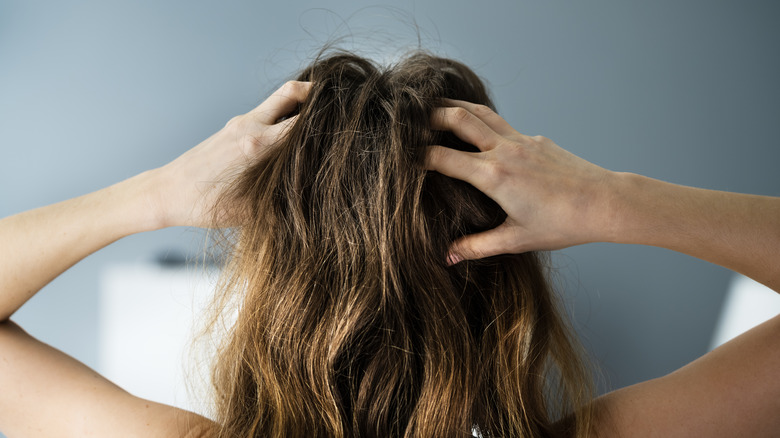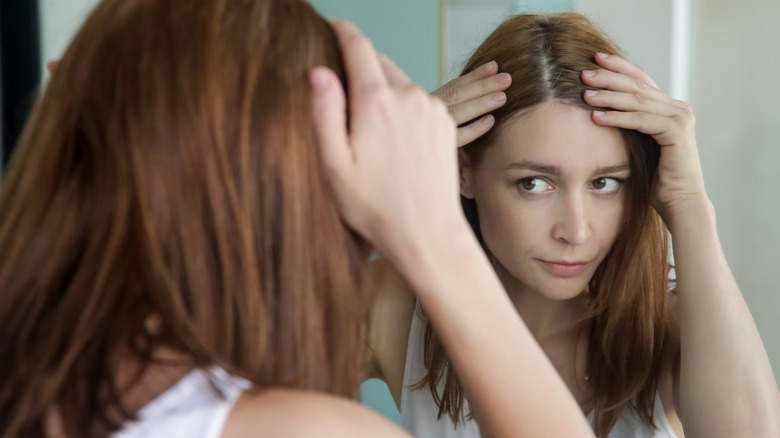The Real Reason You Have Acne On Your Scalp
Acne anywhere is annoying, but having zits on your scalp is a special kind of irritating. Just like anywhere else on your body, your scalp has pores that can get clogged over time, especially if you have an oily scalp. This, along with other reasons, can leave you with pimples along your hairline and underneath your tresses. Fortunately, some shampoos will help reduce the incidence of these bumps.
According to Allure, scalp acne isn't an uncommon occurrence. "Scalp acne refers to pimples scattered throughout the scalp, whereas folliculitis refers to infections and/or inflammation around the hair follicles," explains Carlos A. Charles, a board-certified dermatologist. "[It's] typically seen more frequently in people that also have facial acne."
Similar to the way you may experience zits along your legs or arms, blemishes on the scalp can originate from inflammation of the hair follicles in this area. The outlet notes that the sources can range from bacterial, fungal and other types of infection as well. However, the outlet warns, you could also be suffering from pilar cysts or seborrheic dermatitis — which usually coincides with losing large flakes of skin. If you think that you're suffering from either of these conditions, it's wise to see a doctor and ensure it isn't a bigger issue. Otherwise, your skin may just be reacting to various products and oils you place on your scalp.
Stress can induce scalp acne
Just like other skin conditions, various mental states can impact the way your scalp produces oil. Byrdie notes that, as the stress hormone increases, so does oil production — leaving excess moisture to sit on your pores and cause breakouts. As far as treatment goes, it's wise to speak with a doctor first to determine if there's any cause for alarm. "A dermatologist can help you categorize the types of breakouts you're seeing and figure out the best treatment," dermatologist, Nava Greenfield tells the outlet. "It's important to have a dermatologist evaluate any blemishes because other more serious diseases, like cutaneous lupus and lichen planopilaris, can also result in spots on the scalp. These can be treated as well but require closer attention by your dermatologist."
To help curb these breakouts, follow a similar protocol to the rest of your skin: find products that support the health of your cells and avoid picking at affected areas. If you struggle with scalp acne, washing your hair more frequently can minimize the presence of oil on your skin and thus curb the incidence of breakouts. Byrdie recommends finding a shampoo that contains salicylic acid, cortisone or coal tar as each of these can fight breakouts and soothe irritation. For more support, your dermatologist may prescribe an oral or topical treatment.
By finding a shampoo that works for you, letting it work on your scalp every other day and avoiding picking at your blemishes, you should see a difference in the state of your skin.

